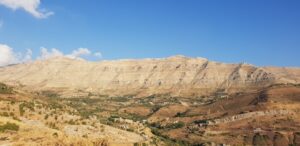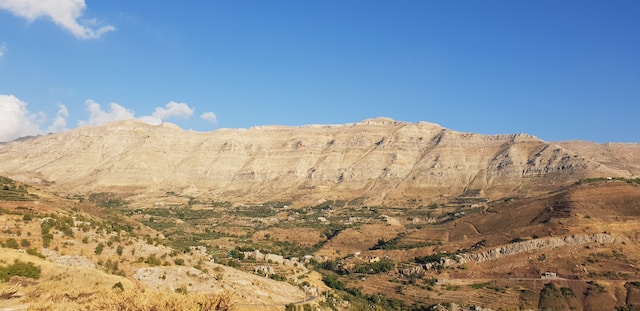
The Hamas-Israeli conflict currently dominates the news of what’s happening in the Middle East. There’s even been speculation that Hezbollah could join Hamas in it fight against Israel. However, there is a quieter, nonmilitary struggle coming out of Syria with the potential to spread havoc on a wide scale beyond the Middle East—the fight against the drug captagon. While the drug is not widely known outside the Middle East, CNN said it has become a “financial lifeline” to the Assad regime of Syria to the tune of an estimated $57 billion in 2022. Captagon smuggling is worth approximately three times the combined trade of the Mexican drug cartels.
Captagon or fenethylline was first synthesized by the German company Degussa Pharma Gruppe in 1961. It was used as a milder alternative to amphetamine and related compounds in the treatment of what we now refer to ADHD until it was listed as a Schedule I controlled substance in the U.S. in 1981. It became illegal in most countries when the World Health Organization listed it under the Convention on Psychotropic Substances in 1986. It is a synthetic drug of the phenethylamine family, which also contains amphetamine, methamphetamine and MDMA (known as ecstasy).
Counterfeit “Captagon” tablets containing other amphetamine derivatives that are easier to produce are pressed and stamped to look like Captagon pills. These knockoffs often contain a mixture of amphetamines, caffeine and various fillers and are sometimes referred to as “captagon” with a lower case “c.”
The BBC reported there have been an increasing number of drug busts involving captagon across the Middle East, with the Persian Gulf region being its main destination. Police in the United Arab Emirates seized 13 tons of captagon pills (worth $1 billion), smuggled in furniture. In 2020, 14 tons of captagon (worth over $1 billion) were seized in Italy. In 2022, Saudi Arabia seized 46 million captagon pills smuggled in a shipment of flour at a warehouse in the capital Riyadh. CNN said millions more pills have been intercepted since.
Captagon has become a bargaining chip for Syria, as it tries to normalize ties with neighboring Arab states. Although Syria’s neighbors are now in talks to normalize relations with Syria and President Bashar al-Assad, Saudi Arabia is still not on board because it is the biggest market for Syrian drugs. According to New Lines Institute, the Syrian regime has leveraged its agency over the captagon trade, suggesting they could reduce captagon trafficking “as a good will gesture.” Syrian state media regularly reports how the interior ministry is cracking down on captagon and other narcotics.
New Lines Institute published a 55-page report “The Captagon Threat,” that investigated the available information about captagon trade efforts to expand its market beyond the Persian Gulf region. Recent seizures point to southern Europe and North Africa as “new transit points and sites of interest.” It remains unclear whether these are intended transit areas for other markets, or if they are emerging as new consumer markets. “Regions beyond are also potentially at risk for increased captagon trafficking from Syria and neighboring states.” See the following map from New Lines Institute.
Captagon production in Syria has shifted from smaller outfits to industrial, containerized operations in rebel-held areas held by the regime of President Bashar al-Assad. Parts of the Syrian government are key drivers for the captagon trade. After the international economic isolation that occurred as a result of the 2011 civil war in Syria, captagon smuggling helped turn Syria into a narco-state. The BBC said at the height of the civil war armed groups supplied the drug to fighters in order to boost their courage and keep them awake. The growth of the captagon industry led the US to introduce the 2022 US Captagon Act, which linked the trade to Syria and called it a “transnational security threat;” but the legislation was never enacted. See the following map from New Lines Institute.
Elements of the Syrian government are key drivers of the captagon trade, with ministerial-level complicity in production and smuggling, using the trade as a means for political and economic survival amid international sanctions. The Syrian government appears to use local alliance structures with other armed groups such as Hezbollah for technical and logistical support in captagon production and trafficking.
Al-Assad and the Syrian government denies that it profits from the drug trade, and Hezbollah denies any ties to it. Nevertheless, in March of 2023, the U.S. and the European Union imposed sanctions on a list of people that included two of President Assad’s cousins suspected of involvement in the captagon trade, as well as prominent businessmen and militia leaders. The militia leaders are associated with drug smuggling and production. One is known as the ‘king of captagon’ and is associated with Hezbollah. Another uses his militia headquarters to facilitate captagon production.
The Assad regime, Hizballah, and other Iranian-backed militia all facilitate the captagon industry, and in doing so fuel regional instability and creating a growing addiction crisis across the region.
The BBC reported a soldier said many soldiers became drug dealers to supplement their incomes. He said they were not allowed to go to the factory. “They would pick a meeting place and we would buy from Hezbollah. We would receive the goods and co-ordinate with the Fourth Division to facilitate our movement.”
The Fourth Division, an elite Syrian army unit tasked with protecting the government from internal and external threats, is heavily involved in the captagon trade. Since 2018, it has been led by Maher al-Assad, the younger brother of President Assad. A former officer who defected from the Syrian army said it because of difficult financial conditions that many members of the Fourth Division have resorted to smuggling. “So the cars of the Fourth Division’s officers started to be used to carry extremists, weapons, drugs, since it was the only body able to move across checkpoints in Syria.”
In “The Captagon Threat,” New Lines Institute said there was some evidence that the Fourth Division was cooperating with loyal elements of Syria’s industries over protection, smuggling and distribution of captagon in and outside of Syria. “These elements appear to be using military or commercial vehicles to transport captagon from distribution centers at militia headquarters and checkpoints under the guise of security missions or business activities.” There is also some evidence that Fourth Division officials use a series of state-owned ports in the Latakia and Tartus region to dispatch captagon shipments. The Fourth Division’s 42nd Brigade has allegedly been used to guard a captagon manufacturing center close to the Syrian-Jordanian border.
Hezbollah’s fighters played a crucial role in helping the Syrian government turn the tide in the civil war and now have a presence throughout the country. They have been repeatedly accused of involvement in drug trafficking, but have always denied it. A Syrian journalist said, “Hezbollah is involved but is very careful not to have its members playing key roles in transporting and smuggling the merchandise.” However, Hezbollah has a known history of controlling Lebanese cannabis production and smuggling it out of the southern Bekaa Valley. In 2016, the UN estimated that Lebanon was the third-largest cannabis producing country in the world.
Hezbollah’s technical expertise in drug smuggling, along with the number of potential partner criminal organizations in the Middle East, Europe, and North Africa, has aided the Syrian government’s efforts to run an industrial-sized captagon market. The relationship builds upon a dynamic that has existed since the Lebanese civil war, where Syrian political, military, and intelligence officials collaborated with Hezbollah in cannabis cultivation and production, activities that led the U.S. Department of State to designate Syria as a narco-state until the Pax Syriana era.
This expertise and its partner organizations has meant Hezbollah could support smuggling efforts, helping dispatch captagon shipments from Lebanese ports in Tripoli and Beirut. Hezbollah has protected transit routes between Syria and Lebanon, and uses its political leverage and security networks within Lebanon to facilitate uninterrupted illicit commerce. Hezbollah fighters have been seen assisting the Fourth Division in controlling and securing key areas of captagon production and smuggling at key checkpoints along the Damascus-Amman highway and other smuggling routes. They have also been seen visiting captagon factories in Syria.
Yet given Hezbollah’s political imperative to preserve its conservative image, particularly amid increasing domestic backlash with political protests and anti-corruption calls, Hezbollah Secretary-General Hassan Nasrallah and other political leaders have publicly denied direct involvement in the narcotics trade, shifting blame to local tribal leaders and political barons with proven ties to the captagon trade and to Syria.
Aljazeera recently reported on the role captagon is playing in Syria and President Bashar al-Assad’s attempt to return to the Arab fold. Al-Assad, of course, denies any organized governmental efforts to profit from the drug. So, it came as no surprise in May of 2023 that he did not discuss the drug trade during the Arab League’s 32nd summit in Jeddah, Saudi Arabia. Following a meeting of foreign ministers after the summit, Syria agreed to address drug trafficking and within days an air raid on Syrian soil killed a reputed Syrian drug kingpin.
A director at New Lines Institute told Aljazeera how the Syrian regime had already conducted a series of “cosmetic” seizures in order to build good will with Arab governments. “They want to be seen as a country that could interdict Captagon if they are persuaded and incentivised to, particularly with sanctions relief and economic packages.” She thought they would give up traffickers that are not closely aligned to the regime, but are named as potential contributors to the drug trade. She does not believe Syrian authorities will touch any of the core backers of the trade named on the U.S. and the European Union list noted above.
I also think the regime is very much using this as their own political card in normalisation discussions, essentially owning up to the fact that they have agency over the trade and using that as a main tactic to encourage countries to pay them off in exchange for them cracking down.
The director of the SOAS Middle East Institute said she believes al-Assad was unlikely to give up captagon and other Arab states have little leverage over al-Assad to persuade him to do so. Revenue from the drug trade, which is Syria’s largest export, will require the restoration of legitimate trade. Al-Assad will demand the lifting of sanctions and the return of his territory. “The most Arab countries can hope for in this regard is that those regime elements involved in the Captagon trade might divert some of it to markets outside the Arab world so as to reduce the flow of the drug to Arab countries.”
So, begin to look for Captagon to come to a drug market near you.





